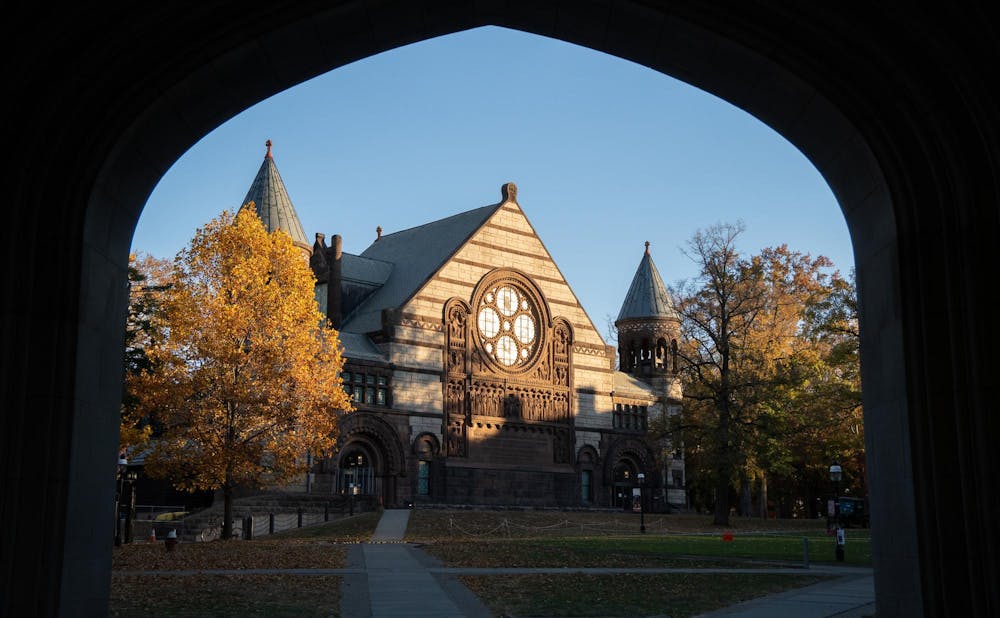The following is an open letter and reflects the authors’ views alone. For information on how to submit a piece to the Opinion section, click here.
We write in support of the proposal to broaden faculty engagement in University governance by enabling remote voting and urge faculty to vote in favor during the voting period.
Currently, faculty decisions are made through in-person votes at faculty meetings. Under this proposal, when a motion passes at a faculty meeting, any six faculty members may request a full faculty remote vote.
When this occurs, the University will distribute written statements from supporters and opponents, giving the faculty 10 business days to deliberate, discuss, and vote electronically. Although the proposal passed by a significant margin at the last faculty meeting, six faculty members have invoked the new provision — a step explicitly allowed by our proposal — which now brings the motion to a full faculty vote.
The proposal for remote faculty voting addresses practical barriers to democratic participation, ensuring that as many well-informed voices are included as possible. Faculty members may be unable to attend meetings for various reasons, including professional and personal obligations, travel, sabbatical leave, or unexpected illness. The current setup especially disenfranchises parents, as meetings start at 4:30 p.m. to avoid overlapping with classes and can easily extend beyond daycare hours.
In a recent Opinion piece, some faculty suggested that those passionate about an issue should make the effort to attend. However, we believe that requiring faculty to choose between voting and their other commitments just to prove their dedication is unnecessary and dilutes the democratic process. Just as the United States allows mail-in voting — and often several days of early in-person voting — in presidential elections to accommodate diverse circumstances, we should similarly offer remote voting for faculty.
The proposal does not replace the current in-person process but builds on it. Faculty discussions will proceed as usual, and if a full remote vote is triggered, these discussions will be supplemented with written statements summarizing both perspectives. This new system would provide additional time for reflection and discussion. It will foster greater faculty engagement, which is otherwise difficult due to logistical challenges. It’s unrealistic to find a time that suits everyone, large venues are scarce, and in-person discussions are often cut short by time constraints. This approach would also strengthen our voting process, as typical faculty meeting attendance ranges from 5–30 percent, granting a disproportionate influence to a small group of attendees.
We expect this mechanism to be used sparingly, reserved for special issues. Monthly faculty meetings often serve ceremonial functions, such as welcoming new members and receiving committee reports. However, there are rare times when an issue arises that captures the attention of a much larger portion of the voting body. Sometimes, these are practical matters impacting schedules, like the University’s decision to end the fall semester before winter break. They may involve formal changes, like the current measure, that affect Princeton’s decision-making process.
Other times, they touch on deeply felt issues connected to our core values, such as international conflicts. In all these cases, increased participation would make our decisions more inclusive, robust, and representative. We ask faculty to follow the link from the Dean of the Faculty from an email titled “Electronic Vote on Approved Faculty Measure” and submit a “yes” vote to support the motion.
Signed,
Gillat Kol, Associate Professor of Computer Science
Peter Ozsvath, Professor of Mathematics

Leslie M. Schoop, Professor of Chemistry
Neta Bahcall, Eugene Higgins Professor of Astronomy, Professor of Astrophysical Sciences,
Simon Levin, James S. McDonnell Distinguished University Professor in Ecology and Evolutionary Biology
Yair Mintzker, Behrman Professor in the Humanities Council, Professor of History
Dan Rubenstein, Class of 1877 Professor of Zoology Emeritus








